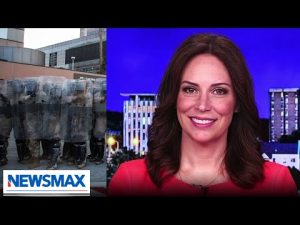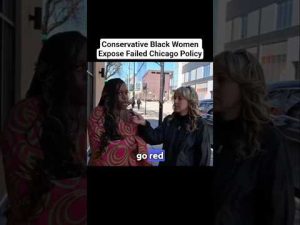**Dearborn Police Patch Sparks Controversy: A Cry for Unity or Division?**
In the heart of Dearborn, Michigan, a decision has stirred the pot like a wild jalapeño in a chili cook-off. The local police department has introduced a uniform patch featuring Arabic script that simply states “Dearborn Police Department.” While officials assure the public that this initiative aims to foster connections with the city’s significant Muslim population, many are raising eyebrows and questioning the implications of this move. Is it a step toward inclusivity, or is it a signal that the identity of American institutions is shifting under our very noses?
America has long been hailed as a melting pot, an exhilarating blend of cultures, languages, and beliefs. The founders of this great nation understood the delicate balance required for governance. They sought a system that would grant freedom while ensuring responsibility. They believed that civil liberties must be coupled with the duty to uphold the Constitution. However, today’s political climate often seems to favor power accumulation over the foundational ideals espoused by those who came before us. This scenario raises an eyebrow; could we be drifting away from the moral compass established centuries ago?
As history recounts tales of Catholic immigrants facing discrimination and persecution, we see a narrative of resilience. Catholics did not demand their symbols be woven into the fabric of state institutions. They integrated, they fought, and eventually carved out a space for their beliefs in a nation that welcomed them. Similarly, the Mormons, who faced harsh treatment and even extermination orders, emerged into a community that admired and upheld the Constitution. These groups demonstrated patriotism, embracing American ideals while blending their identities into the rich tapestry of the nation.
Now, contrast this with the situation in Dearborn. Week after week, voices from local mosques call not for integration into American society, but for the promotion of Sharia law—a stark deviation from the ideals of a secular constitution. The introduction of the Arabic patch on police uniforms may seem like a harmless gesture on the surface. However, it serves as a potent reminder that America needs to prioritize allegiance to the Constitution above all. When institutions begin to cater to the demands of specific religious or political ideologies, it risks the unmaking of our national identity.
The patch’s introduction may be framed as an optional choice by the city’s officials. But the implications echo louder than the voluntary nature implies. This is not just a badge; it symbolizes a growing trend towards the acceptance of parallel systems of justice. If allowed to flourish, these practices may lead to fragmentation, rather than unity. True inclusion does not mean altering civic institutions to mirror individual identities; it means elevating what unites us as Americans.
In conclusion, the Dearborn police patch serves as a crucial flashpoint in a broader conversation about American values and principles. As citizens, the duty lies upon us to uphold the Constitution and ensure that our history—marked by resilience and the pursuit of unity—does not fade into the background. The path America has walked is not merely about cultural festivals or culinary delights; it is about an unwavering allegiance to one nation under God, striving together toward a shared future. Failure to recognize this truth could spell disaster, leading us down a road of division instead of the unity our nation so desperately needs. It is time to stand firm for the America that flourishes on principles of freedom, integrity, and unwavering dedication to the Constitution.







